You’ll want to choose an FDA-approved ECG smartwatch that matches your smartphone ecosystem—Apple Watch Series 10 for iPhones, Samsung Galaxy Watch 4-7 for Samsung devices, or Garmin for cross-platform compatibility. These watches deliver 70-90% accuracy for AFib detection through 30-second recordings that sync directly with healthcare providers. Battery life varies dramatically from 18 hours to over a week, while telehealth integration enables real-time monitoring. The following insights reveal how to maximize these powerful cardiac monitoring capabilities.
Choose the Right FDA-Cleared ECG Smartwatch for Your Smartphone Ecosystem
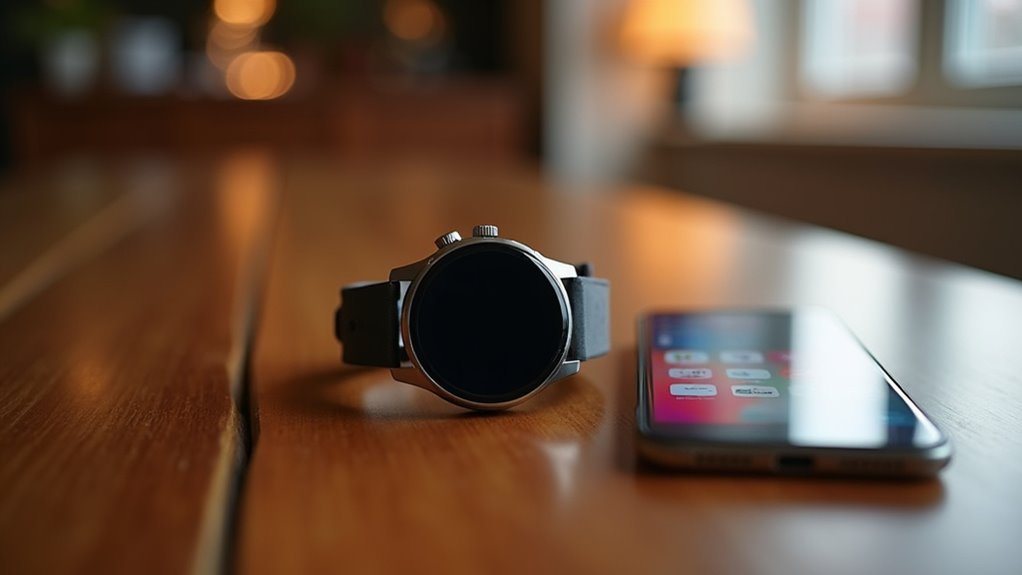
When selecting an FDA-cleared ECG smartwatch, your smartphone ecosystem should be the primary factor guiding your decision.
If you’re an iPhone user, the Apple Watch Series 10 and Ultra 2 offer seamless integration with the Health app for thorough ECG data management.
Samsung Galaxy Watch series (4-7) pairs perfectly with Samsung smartphones, creating a unified health monitoring experience within their ecosystem.
Samsung Galaxy Watch models 4 through 7 deliver seamless smartphone integration for comprehensive health monitoring within Samsung’s unified ecosystem.
Google users should consider the Fitbit Sense 2 or Google Pixel Watch 3, which align with Google’s operating system for enhanced health tracking.
For maximum flexibility, Garmin and Huawei watches support both Android and iOS platforms. These devices utilize a single electrode for ECG measurements, providing real-time results directly from your wrist.
The Withings ScanWatch stands out for its exceptional cross-platform compatibility, working efficiently across multiple operating systems.
Understand What FDA Approval Means for ECG Accuracy and Atrial Fibrillation Detection
FDA approval for ECG smartwatches signifies that these devices have undergone rigorous testing to meet medical-grade standards for detecting heart rhythm abnormalities, particularly atrial fibrillation.
You’ll find that approved devices deliver single-lead ECGs with sensitivity and specificity rates of 70-90% for AFib detection. While they’re less thorough than traditional 12-lead ECGs, they offer real-time monitoring convenience.
You should understand that algorithm accuracy varies between devices, with studies showing sensitivity ranging from 25% to 100% and specificity from 68% to 100%.
The positive predictive value hovers around 85% for arrhythmia detection. FDA approval increases your confidence in using these devices, though they’re more reliable for obvious AFib cases than subtle, intermittent arrhythmias. However, these devices have limited ischemia detection capabilities, making them unreliable for reassuring patients about heart attack-related conditions.
Master On-Demand ECG Recording and Data Sharing With Healthcare Providers

Beyond understanding FDA approval standards, you’ll need to master the practical aspects of recording ECGs and sharing this data effectively with your healthcare team.
Start ECG recordings by resting your finger on the watch’s digital crown for 30 seconds while minimizing movement to guarantee accurate waveform capture. Your recorded data automatically syncs through smartphone apps that connect to healthcare provider portals.
Platforms like FibriCheck offer AI-powered interpretation and clinical dashboards showing heart rate patterns, atrial fibrillation details, and symptom correlations. Low battery levels can compromise reading accuracy, so ensure your device is adequately charged before taking measurements.
These secure cloud-based systems enable your physician to review ECG traces remotely, supporting telemedicine consultations. This integration helps providers monitor your arrhythmia patterns and adjust treatment plans without requiring in-person visits, making cardiac health management more convenient and accessible.
Compare Battery Life and Health Tracking Features Across Top Models
Battery performance varies dramatically across FDA-approved ECG smartwatches, with some models lasting mere hours while others extend beyond a week between charges. You’ll find the Apple Watch Series 9 provides 18 hours while the Ultra 2 doubles that to 36 hours. Samsung Galaxy Watch delivers 40 hours of typical use.
| Model | Battery Life | ECG Feature |
|---|---|---|
| Apple Watch Series 9 | 18 hours | FDA-approved |
| Apple Watch Ultra 2 | 36 hours | FDA-approved |
| Samsung Galaxy Watch | 40 hours | FDA-approved |
| Fitbit Sense 2 | 6 days | Not FDA-approved |
Beyond ECG capabilities, you’ll get extensive health tracking including heart rate monitoring, atrial fibrillation detection, and fall detection across Apple and Samsung models. All featured watches offer 50-meter water resistance and standard connectivity features.
Leverage Telehealth Integration and Remote Monitoring Capabilities
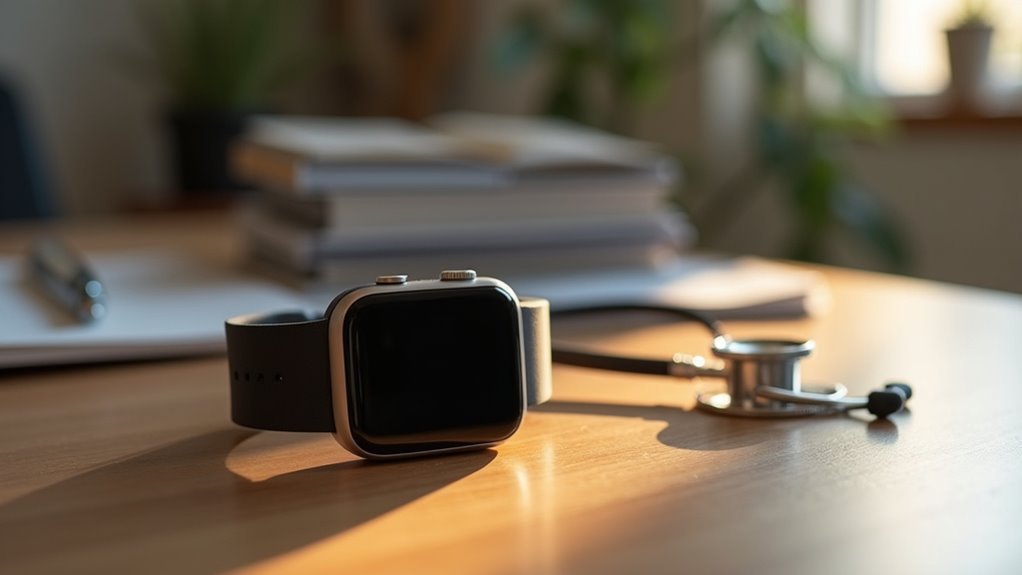
While traditional healthcare requires scheduling appointments and traveling to medical facilities, FDA-approved ECG smartwatches transform patient monitoring by seamlessly connecting with telehealth platforms for continuous remote care.
You’ll benefit from real-time ECG data sharing directly with your healthcare providers, enabling timely interventions when irregular rhythms are detected.
Your smartwatch’s built-in algorithms classify heart rhythms and alert both you and your medical team to potential issues like atrial fibrillation.
Through companion apps, you can easily access stored ECG data during remote consultations, making discussions more informed and productive.
This integration particularly benefits you if you live in underserved areas, providing cost-effective care while reducing unnecessary in-person visits.
Your ECG data integrates into electronic health records, ensuring thorough, personalized treatment strategies.
Frequently Asked Questions
Can I Use My ECG Smartwatch Readings as Evidence in Insurance Claims?
You can use ECG smartwatch readings as supporting evidence, but they’re rarely sufficient alone. You’ll need healthcare provider validation, proper documentation, and supplementary clinical evidence for insurance claims acceptance.
Do ECG Smartwatches Work Accurately During Exercise or Physical Activity?
ECG smartwatches can work accurately during exercise, but you’ll face challenges. Movement affects readings, and devices may misinterpret exercise-induced heart rate changes as arrhythmias. Proper placement and advanced algorithms help improve accuracy.
Are There Any Medical Conditions That Make ECG Smartwatches Unreliable?
Yes, you’ll find ECG smartwatches unreliable if you’ve got arrhythmias, conduction blocks, or take heart medications. Skin conditions, poor contact, and anatomical differences also affect accuracy considerably.
What’s the Difference Between ECG Smartwatches and Portable ECG Devices Like Kardiamobile?
You’ll find smartwatches offer continuous single-lead monitoring with convenience, while portable devices like KardiaMobile provide more detailed 6-lead readings. Portable devices deliver greater accuracy but require separate use for measurements.
Can ECG Smartwatches Detect Heart Problems Other Than Atrial Fibrillation?
ECG smartwatches can’t reliably detect heart problems beyond atrial fibrillation. They’re FDA-approved specifically for AFib detection, but you’ll need extensive medical equipment and professional evaluation for diagnosing other arrhythmias or heart conditions.
In Summary
You’ll make the best choice by matching an FDA-cleared ECG smartwatch to your smartphone ecosystem and health needs. Don’t overlook battery life and additional tracking features when comparing models. Master the on-demand recording process and establish data-sharing protocols with your healthcare team. Take advantage of telehealth integration to maximize remote monitoring benefits. Remember, FDA approval guarantees you’re getting clinically accurate atrial fibrillation detection that can genuinely support your cardiovascular health management.

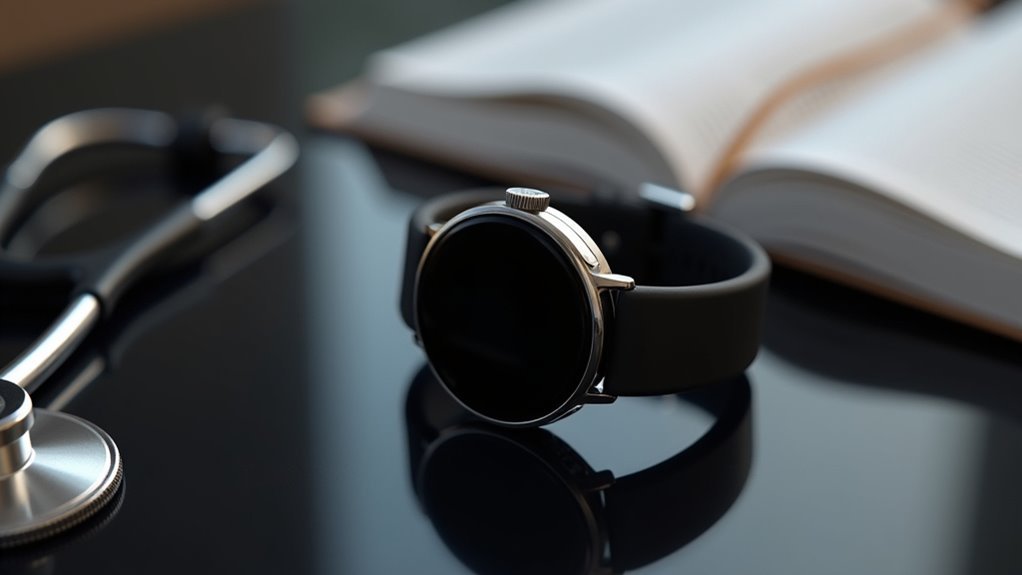
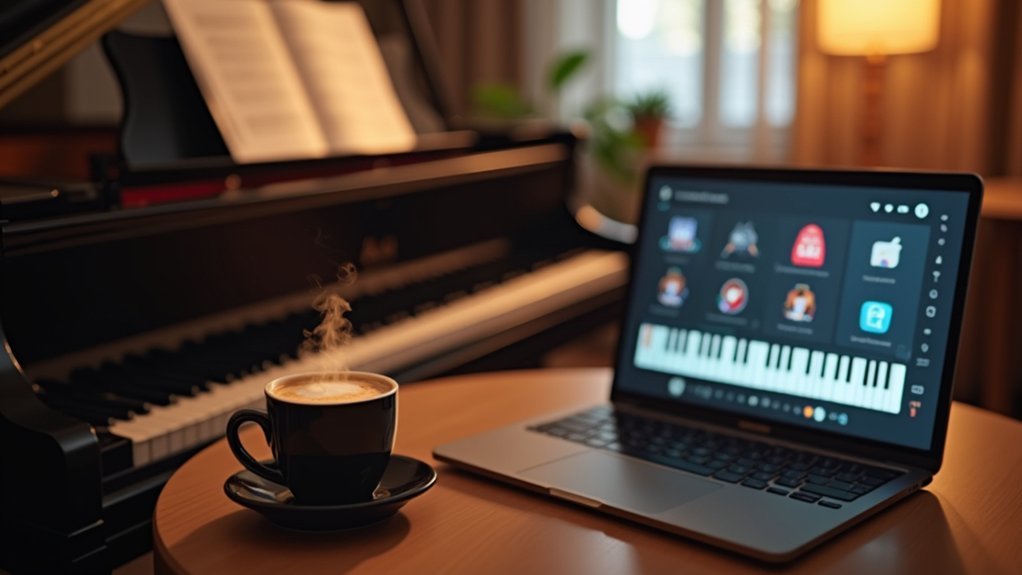
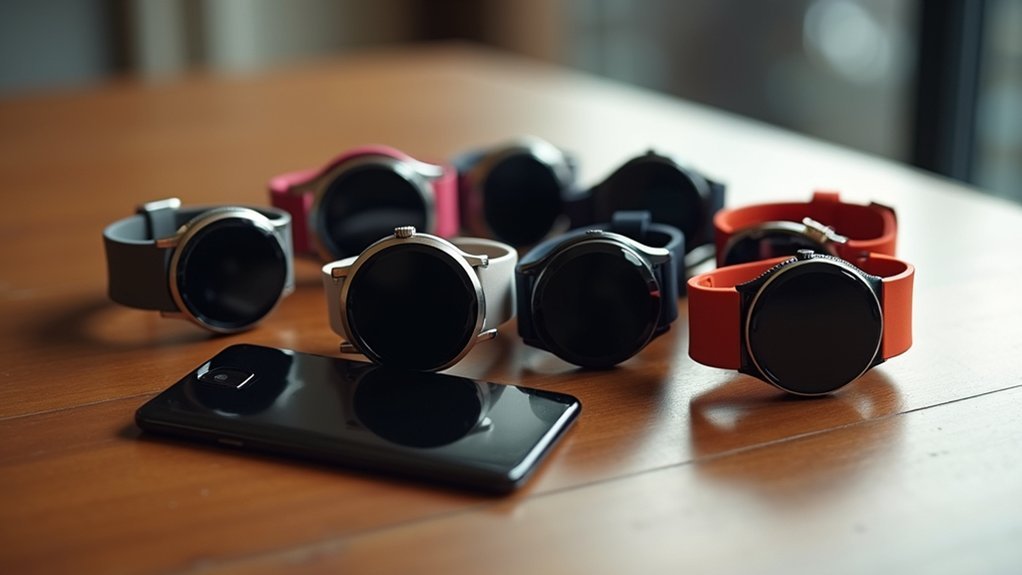
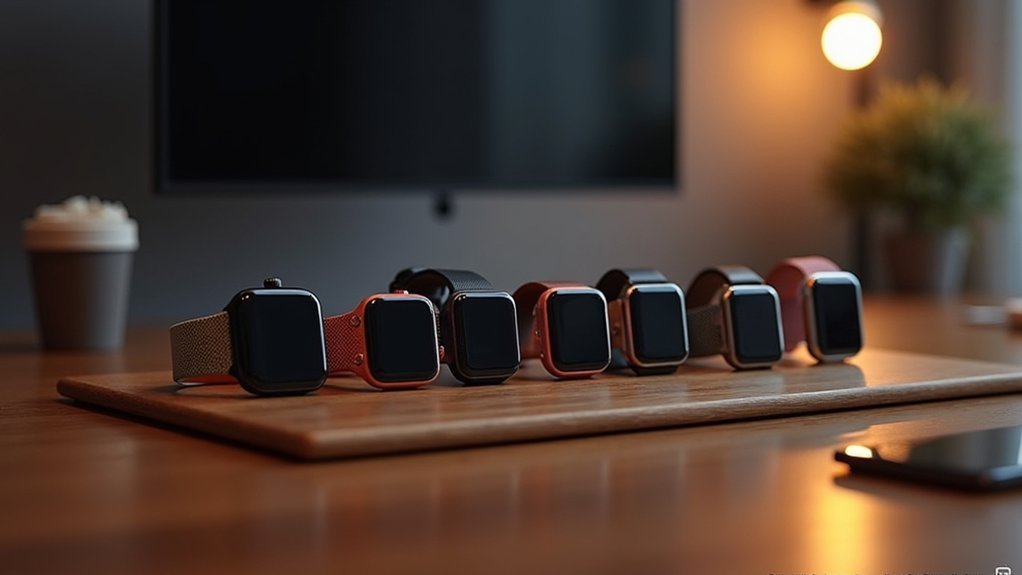
Leave a Reply